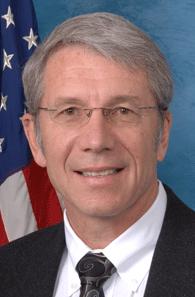Idaho Congressman Mike Simpson and Oregon Congressman Kurt Schrader reintroduced legislation to make common sense changes to the federal wildfire budget. H.R. 167, the Wildfire Disaster Funding Act, which was cosponsored by nearly 150 Members of Congress and supported by a broad coalition of over 300 organizations in the 113th Congress, aims to make sure the way we budget for wildfire suppression activities makes sense by ending the destructive cycle of fire borrowing and treating catastrophic wildfires like other natural disasters.
“There are a number of steps that we need to take to address forest health and management issues, but fixing the wildfire suppression budget must be the first one,” said Simpson. “Until we address this issue, anything we do to increase needed management activities in the forests, like hazardous fuels removal, timber harvest, conservation, or trail maintenance, will continue to be lost in fire transfers. Fixing the wildfire budget is the critical first step in making our forests healthier and, ultimately, reducing the cost of wildfires in the future.”
“Treating catastrophic wildfires like other natural disasters – such as hurricanes and tornadoes – means land management agencies can adequately prepare for the future without jeopardizing their annual funding,” said Congressman Schrader. “ Each year, critical forestry programs face unnecessary budget cuts because they are forced to transfer funds from successful forest management practices to pay for wildfire suppression. Freeing up those financial resources to enhance catastrophic fire prevention programs will ultimately reduce costs on the federal government and help us better prevent wildfires in the future.”
H.R. 167 would budget for catastrophic wildfires in the same way as other natural disasters, like floods and hurricanes. Under the bill, routine wildland firefighting costs, which make up about 70% of the cost of wildfire suppression, would be funded through the normal budgeting and appropriations process. The true emergency fire events, which represent about 1% of wildland fires but make up 30% of costs, would be treated like similar major natural disasters and funded under existing disaster programs.
“The way we currently budget for fire is costing taxpayers and destroying our forests,” said Simpson. “Passing this legislation will have a significant and long-term impact on both our public lands and on our budget, allowing us to finally budget responsibly for wildfire suppression in a way that ultimately decreases firefighting costs by mitigating fire risk and making us better prepared for and more resilient against future fires.”
Disclaimer: Articles featured on Oregon Report are the creation, responsibility and opinion of the authoring individual or organization which is featured at the top of every article.


